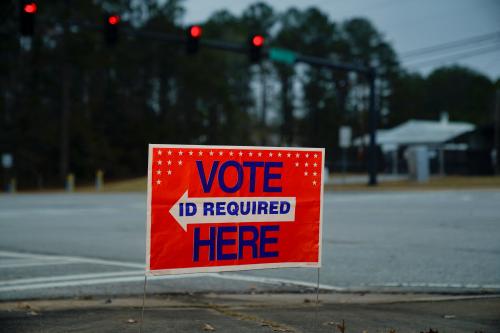Many in the United States believe that China’s drive toward democracy stagnated after the People’s Liberation Army put down the 1989 Tiananmen Square demonstrations. Their rationale is that despite (or because of) China’s economic transformation, the Communist regime has been able to resist genuine political reforms. This belief, however, overlooks significant socio-political dynamics that are gaining momentum in China.
Several of these new forces were unimaginable at the time of the Tiananmen student protests. A distinct middle class was virtually nonexistent in China 20 years ago, but today there are a sizable number of Chinese citizens with private property, cars, financial assets and money to spare for travel. A recent report by McKinsey estimates that by 2025, China’s middle class will consist of about 520 million people. This rapidly growing and economically empowered group is better equipped to seek political participation than the Chinese citizens of 20 years ago and more likely to be successful.
The commercialization of the media has also contributed to the increasing availability of information. In the mid-1970s, China had only a few TV and radio stations along with a mere handful of newspapers. As of 2007, there were more than 2,000 newspapers, more than 9,000 magazines, 273 radio stations and 352 TV stations in the country. Moreover, they report on diverse topics; in recent years, headlines have included official corruption, lack of government accountability, and industrial and coal-mining accidents.
Another important trend in the country is the rise of civil society groups and lawyers. There are about 280,000 registered civil society groups in the country today, including 6,000 foreign nongovernmental organizations. The number of registered lawyers and law school students has also increased dramatically. In 2004, the number of students enrolled at the Law School of Beijing University equaled the total number of law students trained at the school for the past 50 years. Many of these lawyers and NGOs are pushing for the rule of law and the protection of individual rights.
Changing political dynamics exist not only in Chinese society, but also within the ranks of the leadership. China is no longer led by a strongman like Mao Zedong or Deng Xiaoping. Rather, it is ruled by checks and balances between two political coalitions: the “elitists” and the “populists.” Elitists represent the interests of the coastal region, the entrepreneurs, the middle class and the foreign-educated Chinese nationals. Populists speak for the inland region, representing the interests of farmers, migrant workers and the urban poor.
Chinese leaders call this new political dynamic “inner party democracy.” At present, this “One Party, Two Coalitions” practice is neither formalized nor transparent. But the dynamic nature of this inner-party politics will inevitably make political lobbying more transparent, factional politics more institutionalized and elections more genuine.
Some of the top leaders are now known for their distinct views on the nature of democracy. On the one hand, Wu Bangguo, the chairman of the National People’s Congress, recently said that the Chinese political system is already democratic and the Communist Party of China will never give up one-party rule. On the other hand, Premier Wen Jiabao consistently advocates for the universal values of democracy. He has defined democracy in largely the same way as many in the West would, noting the importance of elections, judicial independence and supervision based on checks and balances. Premier Wen’s emphasis on the universal values of democracy reflects new thinking in the liberal wing of the Chinese political establishment. This is a minority view within the party leadership, but like many other ideas in China during the past three decades, what begins as a minority view may eventually be accepted by the majority.
The Chinese political system is, of course, still constrained by the party monopoly on power, the lack of an independent judiciary and media censorship. Moreover, the Chinese government has a poor record on human rights and religious freedom, and political participation through institutional means remains very limited. Yet, China is making significant progress. Time will tell whether this incremental transformation can succeed where the 1989 Tiananmen movement failed.



Commentary
Op-edDemocracy Gaining Momentum in China
June 4, 2009